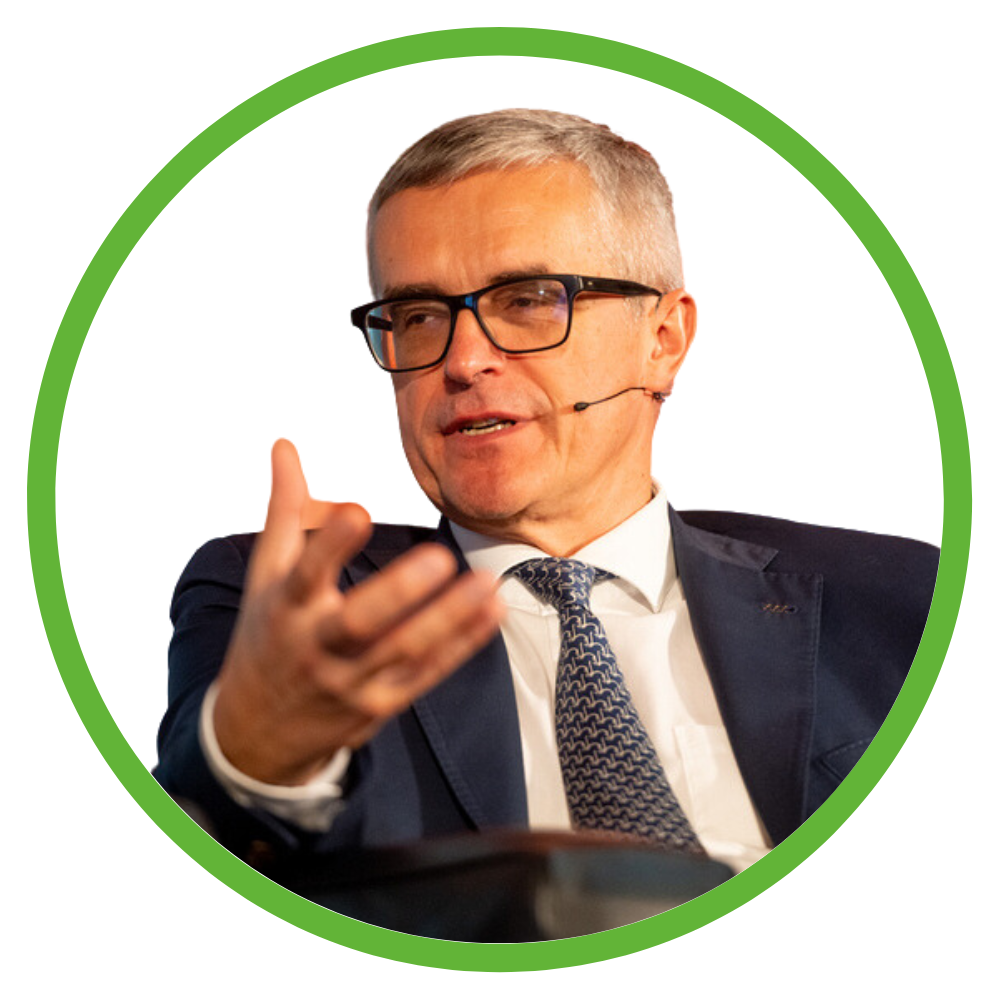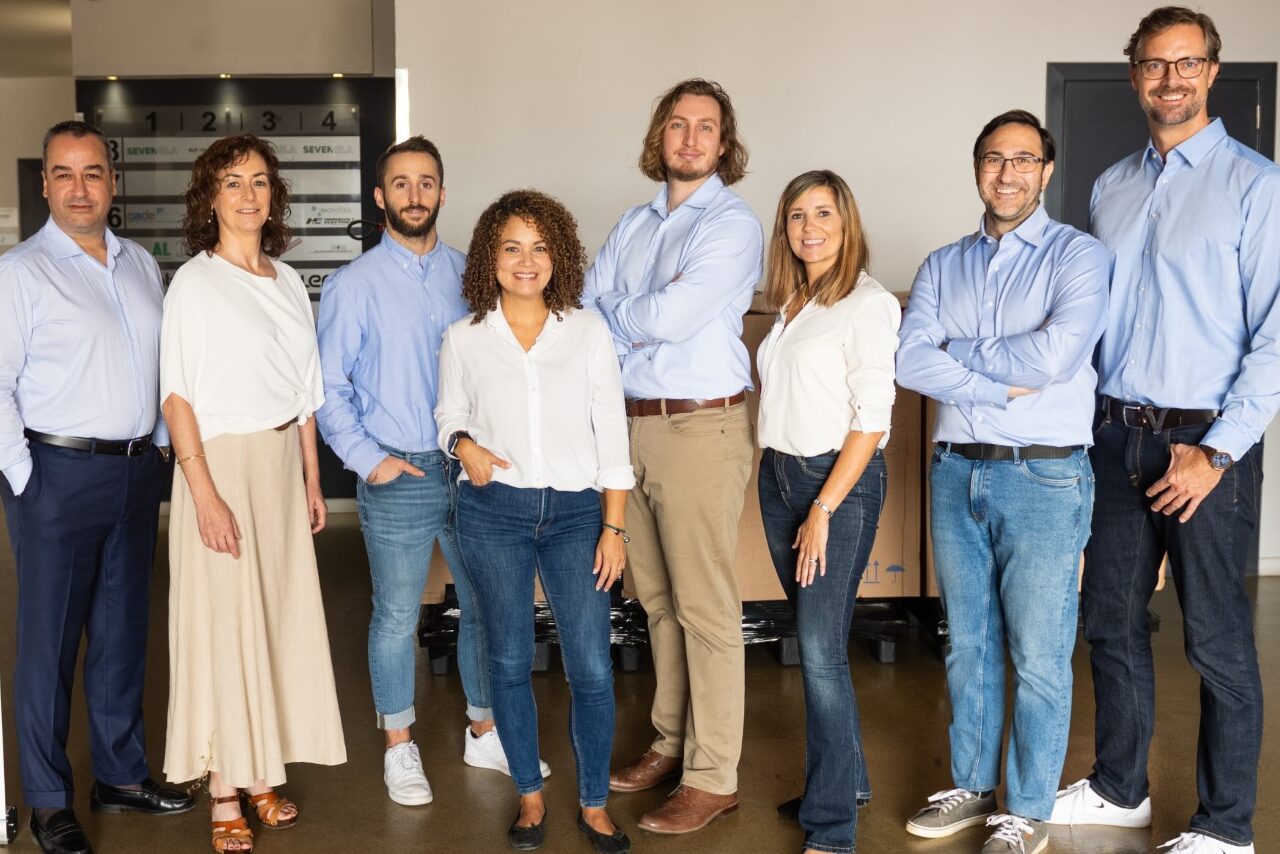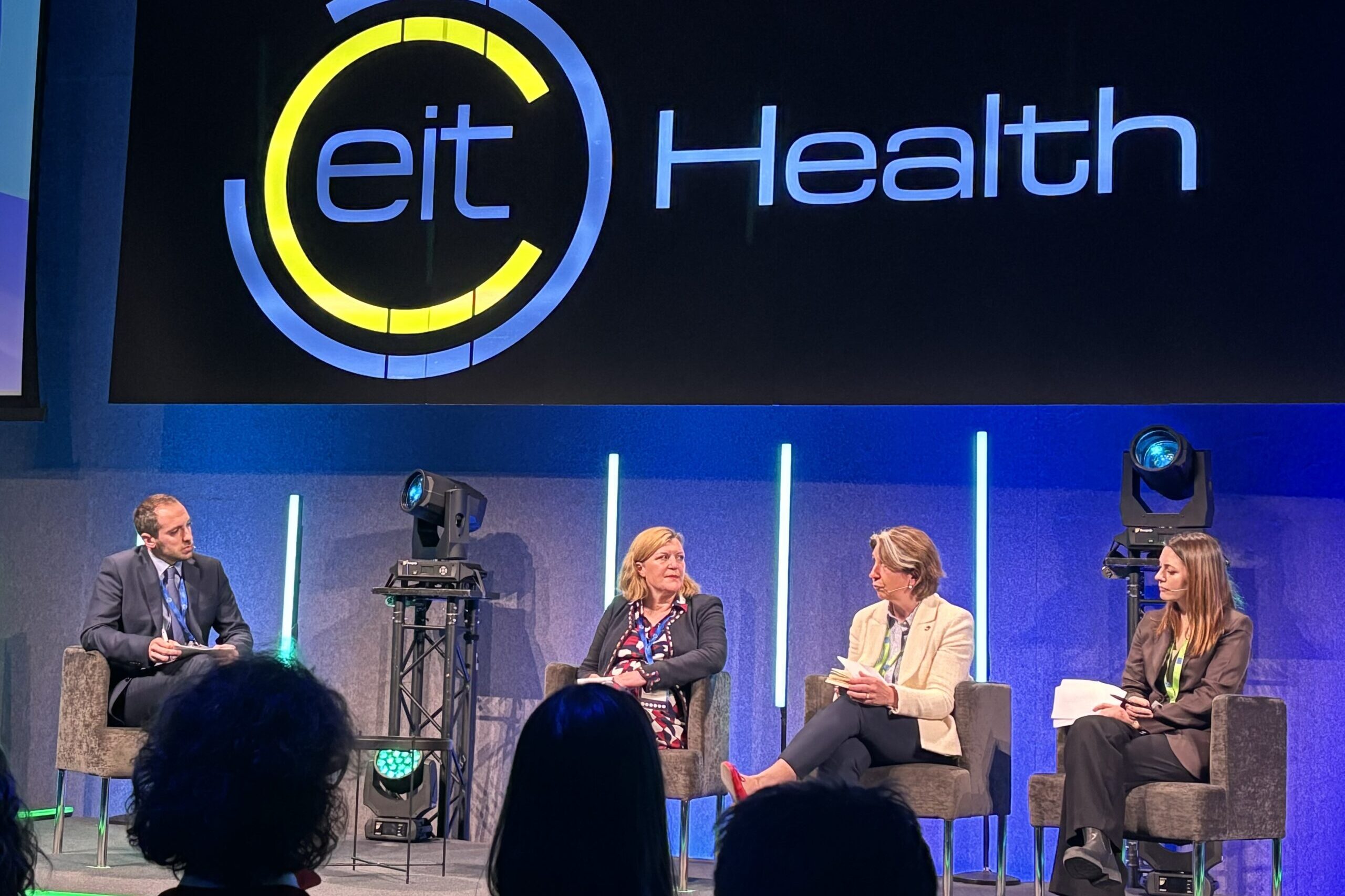19th June 2023
In an era driven by digitalisation and data, the sharing of health information has emerged as a revolutionary force in the healthcare sector. The European Commission’s ambitious initiative, the European Health Data Space (EHDS), aims to facilitate the secure and responsible exchange of health data across borders.
To shed light on this ground-breaking endeavour, we had the privilege of interviewing Andrzej Rys, the Principal Scientific Advisor at the European Commission’s Directorate-General for Health and Food Safety (SANTE).
With his extensive experience and involvement in shaping healthcare regulations, Andrzej Rys offers valuable insights into the significance, challenges, and potential benefits of the EHDS.
Can you elaborate on the significance and revolutionary nature of health data sharing?
In 2018, health data sharing was still seen as a complex and far-reaching approach. However, the European Commission made it clear in its policy that the willingness of patients and stakeholders to share and make health data available are needed for different purposes. The outbreak of COVID-19 dramatically changed the landscape. The urgent need for data during the pandemic highlighted the importance of efficient data management and decision-making. The varying approaches taken by different countries, including Sweden, underscored the challenges faced during the crisis. Additionally, the development of the digital COVID-19 certificate demonstrated that European countries can collaborate and propose solutions that gain acceptance globally. The pandemic acted as a catalyst, fostering a belief in the effectiveness of digitalisation, and increasing trust in the system. Overall, society and healthcare providers became better prepared for the development of the EHDS. Collaboration with stakeholders and Member States was crucial in the development of the proposal, and the European Commission hopes negotiations will be finalised by the European Parliament and Council in the coming months.
And what is your role in this?
–Throughout my 17 years of work as a director in different health departments of the European Commission, I have been involved in creating concrete legislations and regulations in health. I have worked closely with my team, Commission colleagues, Member States experts and stakeholders to develop the EHDS proposal. As the Principal Scientific Advisor, my role is to stimulate collaboration with stakeholders, including academia and life science sector and EIT Health. To achieve this, we have created the EHDS roundtables and meetings in various countries to understand the diverse needs and contexts across Europe.

In terms of the next steps or obstacles, what can you tell us about what you foresee and how they might be overcome?
There are several types of obstacles that need to be addressed. Firstly, the challenges arising from complex European legislation and its implementation at the national level. Different countries have varying cultures, capacity, administrative systems, and policy-making approaches. Tailoring the implementation to fit these diverse contexts is crucial. Secondly, technical challenges related to building the necessary infrastructure for the EHDS. While digital solutions have been implemented in various sectors, healthcare presents unique complexities. Interoperability and ensuring access to data are key technical aspects that need to be addressed. Thirdly, ensuring that end-users, including patients and healthcare professionals, understand and embrace the regulations and their rights regarding health data access and collection. This requires clear communication and education. Lastly, fostering a data culture where healthcare professionals actively use data for improving practices and making informed decisions is essential. Learning from each other’s experiences and sharing knowledge between Member States can greatly contribute to overcoming these challenges. Adequate resources and funding from both the EU and Member States are also crucial for the successful digitalisation of healthcare.
There are several types of obstacles that need to be addressed.
Can you say something about the preparedness in the Member States regarding this initiative? Are there any differences that you observe in terms of digitalisation and health data gathering across Europe? What challenges do you see, and what are your hopes?
The level of development in digital health and health data gathering varies across European Member States. Different countries have different approaches and levels of digitalisation. Some countries, like Scandinavian countries and Estonia, have been at the forefront of digitalisation in the healthcare sector for many years. Others, like France, Germany, Belgium, and Poland have recently made significant progress. Each country has its own unique challenges and strengths due to differences in administrative systems, cultural norms, and policy-making approaches. The situation is complex, and progress is not uniform across Europe. However, based on my experience and observations, I believe that all Member States are willing to adapt and prepare for the future. The lessons learned from the COVID-19 pandemic have demonstrated the value of digitalisation and the need for collaboration. It is important for countries to build upon their strengths and work together to address the challenges. The EHDS provides an opportunity to create a common framework for data sharing and collaboration, and I am optimistic about its potential impact on patient care and health outcomes across Europe.
Finally, how do you believe the European Health Data Space will impact patient care, and what benefits do you see emerging from this initiative?
The European Health Data Space has the potential to revolutionise patient care and healthcare outcomes. By enabling the secure and responsible sharing of health data across borders, the EHDS can facilitate the identification of patterns, trends, and best practices in healthcare. This can lead to improved decision-making, personalised treatments, and better patient outcomes. For example, EMA and the European pharmacovigilance system demonstrates how data gathering and digitalisation can enhance patient care. By quickly identifying and addressing issues related to medication side effects, patient safety can be significantly improved. The EHDS can build upon such successes and further enhance patient care by leveraging digital solutions and collaboration. It can enable healthcare providers to access comprehensive and up-to-date information about patients, leading to more accurate diagnoses, better treatment plans, and improved patient outcomes. Additionally, the EHDS can facilitate research and innovation by providing researchers with access to large-scale, diverse datasets. This can accelerate the development of new treatments, therapies, and interventions. Overall, the EHDS holds great promise in transforming healthcare by harnessing the power of data sharing and digitalisation, and it is crucial for all stakeholders to work together to maximise its potential and ensure its successful implementation.
At a round table discussion on 27 June, obstacles and opportunities prior to the implementation of the EHDS proposal are discussed in order to get a common picture.
What and when? The event on 27 June 27 Stockholm is one of ten roundtable discussions taking place around Europe. The initiative is led by a steering committee chaired by Andrzej Rys, Chief Scientific Adviser at DG SANTE, European Commission, who will also participate in the round table in Stockholm. The Swedish representative on the steering committee is Clara Hellner, director of research and innovation, Region Stockholm.
Background: Swedish Medtech and EIT Health Scandinavia are organising an official side event to the EU conference on Life Science – The Era of Personalised Medicine 26-27 June. The first part of the program is a seminar hosted by Swedish Medtech and the second part is EIT Health’s round table discussion. The program ends with a networking recpetion “Swedish Life Science United”, organised by Swedish Medtech, Swecare, SwedenBIO and LIF.
The insights from the roundtable discussions will be collected in a report that will be published at the end of the year. The purpose of the report is to provide an overall picture from EU member states of obstacles and opportunities for the upcoming implementation of EHDS.
Participants in the round table discussion:
- Jean-Marc Bourez, CEO, EIT Health, France
- Elina Drakvik, Specialist, Finnish Innovation Fund Sitra/TEHDAS, Finland
- Niklas Eklöf, Head of Unit E-Health, National Board of Health and Welfare (Socialstyrelsen)
- Silja Elunurm, Head of Regulatory and Legal, Migrevention, Estonia
- Margareta Haag, President, Nätverket mot Cancer
- Clara Hellner, Director of Research and Innovation, Region Stockholm
- Leo Hovestadt, Director Governmental Affairs EU, Elekta, The Netherlands
- Anna Lefevre Skjöldebrand, CEO, Swedish Medtech
- Anders Murman, CEO and co-founder, Deversify
- Alexander Olbrecht, Director Digital Health, MedTech Europe
- Andrzej Rys, Principal Scientific Advisor, DG SANTE, European Commission, Brussels
- Laurent Saunier, Head of Unit Precision Health, Vinnova
- Michel Silvestri, Head of Unit, E-Health Agency (eHälsomyndigheten)
- Fredrik Strand, Docent and Radiologist, Karolinska Institutet
- Annika Szabo Portela, Managing Director, EIT Health Scandinavia
27 June 14.00-17.00 Empowering Patients through Health Data: Exploring the Opportunities and Challenges of the EHDS
– a seminar and a round table hosted by Swedish Medtech and EIT Health Scandinavia
BACK TO EIT Health Co-Location Centre covering Sweden, Denmark, Finland, Norway and Estonia
MOWOOT secures over €2M from Next Generation funds

Learn how EIT Health accelerated their journey.
Join the heartbeat of healthtech in Munich this June

Discover the third annual health.tech conference.
Health experts make recommendations on EHDS implementation

Discover our new Think Tank report.